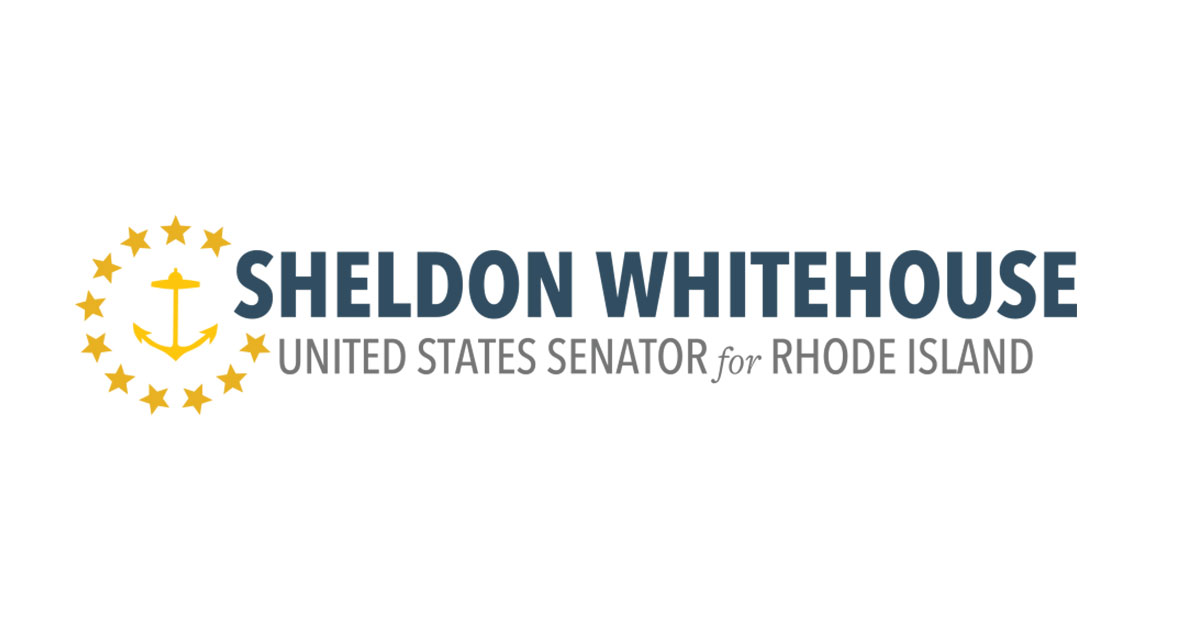Source: United States Senator for Rhode Island Sheldon Whitehouse
05.12.22
Republican rider hampers the IRS’s ability to set rules for 501(c)(4) dark-money groups
Washington, DC – Today, Senate Finance Taxation and IRS Oversight Subcommittee Chairman Sheldon Whitehouse (D-RI) led 19 senators in calling on the Senate Appropriations Committee to end years of harmful Republican appropriations riders that block the IRS from setting clear rules for 501(c)(4) nonprofit groups that spend dark money in our politics.
In recent years, Republicans have attached the riders to must-pass funding measures in an effort to defend unlimited secret spending in our politics – perpetuating what has been called a “tsunami of slime” from special interests rigging the government in their favor. Whitehouse and his colleagues call on appropriators to end the inclusion of the riders and permit the Treasury Department and IRS to do their jobs.
“Since Citizens United, Republicans have stopped at nothing to protect dark money. A big part of their defense is blocking the IRS from setting clear rules for organizations that enable dark-money spending,” said Whitehouse. “I hope the Appropriations Committee ends these harmful riders and permits the IRS to set regulations that clarify what 501(c)(4) organizations can and cannot do. That will make a real difference in the fight against dark-money influence.”
Joining Whitehouse’s letter are Senators Alex Padilla (D-CA), Elizabeth Warren (D-MA), Jon Tester (D-MT), Dick Durbin (D-IL), Raphael Warnock (D-GA), Dianne Feinstein (D-CA), Sherrod Brown (D-OH), Amy Klobuchar (D-MN), Bernie Sanders (I-VT), Ron Wyden (D-OR), Jeff Merkley (D-OR), Ben Ray Lujan (D-NM), John Hickenlooper (D-CO), Mazie Hirono (D-HI), Richard Blumenthal (D-CT), Catherine Cortez Masto (D-NV), Cory Booker (D-NJ), and Edward J. Markey (D-MA).
So-called “social welfare” groups are exempt from taxation under section 501(c)(4) of the tax code, and the law requires them to operate exclusively “for the promotion of social welfare.” However, these groups routinely spend large sums on political attack ads, or transfer funds to organizations that can spend money on political influence campaigns. This gaming of the system contributes to the enormous uptick in dark-money spending inundating American politics. Since 2010, 501(c)(4) organizations have spent over $1 billion on political expenditures, compared with $103 million in the previous decade.
Full text of the Senators’ letter is below. A PDF is available here.
The Honorable Chris Van Hollen The Honorable Cindy Hyde-Smith
Chairman Ranking Member
Committee on Appropriations Committee on Appropriations
Subcommittee on Financial Services Subcommittee on Financial Services
110 Hart Senate Office Building 702 Hart Senate Office Building
Washington, DC 20510 Washington, DC 20510
Dear Chairman Van Hollen and Ranking Member Hyde-Smith:
We respectfully request that you not include any riders prohibiting the Treasury Department or the Internal Revenue Service (IRS) from promulgating rules related to political spending in the Fiscal Year (FY) 2023 Financial Services and General Government (FSGG) appropriations bill.
Since Citizens United, a flood of dark money has entered our political system. 501(c)(4) organizations are often the beneficiaries of these funds, using them to engage in political activity.
Past appropriations bills have included several objectionable policy riders, including a rider preventing the IRS from revising or issuing new rules governing the political spending of 501(c)(4) organizations. These riders render the IRS unable to provide clear guidance to nonprofits on what types of activities are permissible. These riders are unnecessary because the rulemaking process itself provides ample opportunities for public debate and dissent to ensure that the rulemaking reflects the interests of the public.
To ensure that the FY 2023 FSGG bill enables agencies to effectively carry out their duties and serve the American people, we urge you to refrain from including policy riders that would impede the IRS’s ability to proceed with necessary and appropriate rules governing political activity.
###
